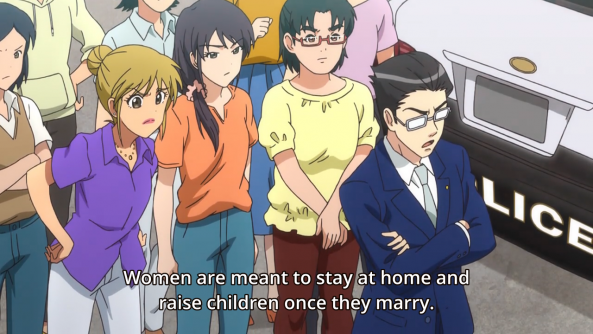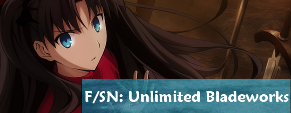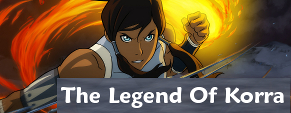Review-Roundup: Idol Jihen 04/05, Masamune-kun No Revenge 02-05, Fuuka 04-06, Kuzu No Honkai 03/04

Who could’ve guessed…? Idol Jihen actually finds its footing in episode five as misogyny becomes the villain. I mean, it’s still an absolutely ridiculous series, of course, but, hey, you take what you can get with a series like this one.
This time I review:
Idol Jihen 04/05: A swimsuit-contest turns out to be about the idols’ connection to the ocean and their right to dress the way they want. And in episode 05 preschool-children protest the closing of their school while a sleazy politician learns that as many women are working professionals his views on women are completely outdated.
Masamune-kun no Revenge 02-05: A whole series about a fat guy who worked his ass off to become good-looking and exact revenge on the girl who dared to reject his love when they were children – except it turns out the two are meant for each other. It only took four episodes to tell that story. But the series is cheap enough to just make up shit to keep the story going. I guess, there are enough suckers out there who actually give a shit about the idiots in this series. Otherwise, you just got the signal from the series that watching any more of it will be a waste of time.
Fuuka 04-06: Music. We all have it. So how hard can it be to be a really talented genius? Not that hard apparently because two such persons are fighting over the main-dude’s heart. Yeah, this broomstick of a loser is apparently at the center of a LOT of romantic attention these days. Turns out his two best friends on Twitter are cute girls who are ready to “get it on” (if you know what I mean 😉 ). And Fuuka also wants to fuck him. Anyway, the whole band-thing is also a gimme since it turns out that they just happen to know a famous band. Nothing unbelievable about that!
Kuzu no Honkai 03/04: Love hurts. But also, Love Is A Battlefield. And with all her might Hanabi tries to escape a Total Eclipse Of The Heart. But it turns out there’s someone out there who’s very similar to her. It’s Akane, the woman who stole the man she’s in love with, a woman who’s a Maneater.
Yep, it turns out, it’s that kind of series.
Idol Jihen 04/05 Review:

Okay, I get it, this show thinks Shintoism is the real deal. If that’s what the show needs to believe in to get to environmentalism, fine. Still… this is a religion and we’re in the 21st century. Maybe the series should also address the topic of faith when it wants to deal with religion…
A show like Idol Jihen comes with a lot of assumptions. Idols, politics, moe girls, corruption, tradition etc.: There are a lot of connotations to these topics. What’s probably most surprising about the show is that it isn’t quite what you expect it to be. This is a series that romanticizes the countryside and the people who live in it. It’s a series whose idea of environmentalism is more strongly tied to the idea of harmony instead of some proactive protection-agenda and its take on religion is more fantastical than faith-based. And in episode 04 the series tackles the idea of beauty.
Introducing the Bishoujo-party, the fourth episode opens with the “bad guys” arguing in the parliament that the Bishoujo-party should be dressed more conservatively. And the flippant response is “But it looks good, so who cares?”. It’s a surprising exchange as I had previously assumed that the point of the idol-politicians was for them to become righteous figures of responsibility who fix all the problems of this series’ Japan. Here, though, the idol-identity takes precedence over their position as politicians. Does this make sense? Not really… but it’s another sign of just how strange this series is.
And the strangeness of the series is its most baffling element. I mean, since I called it ‘strangeness’ it seems obvious to call it “baffling”. But it would be SO easy to stitch together a version of this series that’s heavily reliant on tropes, full of fanservice-moments and it would all happen under the umbrella of blind optimism. This isn’t what the series is doing here, though. How do we fight political corruption? By making idols politicians! How do we evaluate an idol? By how good of a marathon-runner they are! What do you do with industrial waste? You turn it into art! Does religion matter? Yes, because it’s real! Those are absolutely absurd answers!
That’s why I keep watching this series, though. For everything this show wants to do there’s an easy answer and then there’s the right answer. This series does neither. Instead, the series finds some insane angle or perspective on a problem that makes the show a truly surreal experience. The show’s like watching a car-crash where you find out at the last moment that one of the cars is a ghost-car and therefore will just drive through the normal car.
So we get to this fourth episode which is about a swimsuit-contest. But it happens in the context of a debate that the idol-politicians should dress more conservatively. And the idols in the episode just talk about the swimsuit-contest as a chance to look great. What makes it so crazy is the tonal obliviousness of how this idea gets presented. It isn’t that the show dismisses any nuance in how it approaches a certain topic; it simply doesn’t show any awareness of it.
What makes it even more surreal is how the series handles the conflict with the antagonists. In this episode, they actually rig the Swimsuit-contest to be deadly – and everything goes according to plan. But then one of the Bishoujo-idols just recommends following the guidance of the waves or something. Once again the series commits to a completely fantastical plot-development. In this series, some idols apparently have some form of divine insight. This enables them to survive and bring the event to its planned ending.
It’s interesting to note, though, that the show never punishes its antagonists. Nor are the idols interested in justice of any kind. The guy with the dumping ground, the woman who hates cats and here the guy who wanted to sabotage a swimsuit-contest: These people tried to attack the idols or threatened the people who love the idols. But in return the idols just fix the problem without ever really engaging the “evil guys”. There’s no fight and naturally this means the idols never have to engage with the villains’ motivation. It isn’t relevant why any of the bad guys because the series presupposes that they’re wrong and then they always get magically brainwashed by the idols’ power. With all of this talk of Aura as well, it does seem like Idols have supernatural abilities in this series.
And then the fifth episode surprisingly does everything right. The fifth episode is the epitome (so far) of what this series wants to be and should be. Alone the premise is everything I’ve wanted this series to be: Natsuki is the police-chief of the day for the sake of promotion and she bravely involves herself in a hostage-situation. That’s already the right mix of ridiculous and moralistic storytelling this series needs. But the episode goes a couple steps further: The hostages are other idol-politicians and they’ve been taken hostage by preschool-children who protest against the closing of their preschool. And outside the preschool the mothers of the children are gathered (who had to leave their work). As Natsuki finds out, the idols of the Wakaba-party (which are the loli-idols apparently) instigated the whole thing. And as the evil politician arrives, it gets revealed that a business-center is supposed to be built in place of the preschool.
What makes the fifth episode the best episode of the show so far is that it’s actually tackling policy-/society-issues in a somewhat meaningful way. Whoever wrote this fifth episode certainly has better writing-chops than whoever wrote the previous four episodes. If every episode so far had been like the fifth, you could actually take this series serious!
Because the fifth episode is a deeply feminist episode tied to a socialist political angle. First, it argues that it’s wrong for the state to close preschools. But the reason for that is its feminist message that women don’t belong at home. They can be as much professionals in society as men can be. And so it’s good if the children can be taken care of at a state-supported preschool. Yeah, this fifth episode is actually taking a stand on a political/societal issue and for once it isn’t a conservative perspective.
Also, it’s striking how the bad politician in the fifth episode doesn’t simply change his opinion because idols did their usual song and dance. He was convinced by the bravery of the mothers who were all professionals and therefore acted quickly when a nearby beehive started attacking people (which is ridiculous, of course). In this case, the politician realized the folly of his ways on his own with a little bit of pushing from the plot. But it’s so rewarding to see this slimebag see the error of his ways after he had this hateful speech about women and the mothers of the children in the preschool before. That’s actually good writing!
I mean, the fifth episode’s plot is still utterly ridiculous but it’s the first episode that actually dares to stand for something! All the stuff before has been silly but benign garbage. That’s what the series should pursue: It should be a series of fables with idols being the heroes of what’s right and virtuous.
Episodes-Rating: 04th Episode 5.5/10 05th Episode 7.5/10
Masamune-kun no Revenge 02-05 Review:

I would’ve loved the series to explore this angle further. After all, Masamune is a chubby kid who made himself “look good” but he takes all his social cues for how a “cool kid” should behave from mangas. And I don’t mean the “what cheesy thing could I do now?”-angle the series has been consistently employing for comedy. What you could explore here is the struggle between fiction vs. reality. Like, it could show some other pretty boy trying the same flirting-strategy on the “cruel princess” as Masamune had planned to do. The whole fiction vs. reality stuff is pretty meta in a fictional story, of course, so naturally what you’re aiming for is a subversion. And yet, the series is just using it for throwaway jokes.
“But considering just how cheesy the premise is, I’m skeptical this series will even try to subvert its tropes in favor of discerning the problems of superficiality in society. Actually the premise makes me think the series wants to put as much distance as possible between itself and its darker premise by focusing on fluffy romance and anime-school-life-shenanigans.”
That’s how I had ended my first impression. Four episodes later and we’re pretty much seeing this impression becoming fact. It’s like the writer of this series stole the kernel of a good idea from someone else and used it to produce the most generic narrative imaginable. There’s no creativity here! In fact, this show is an example of bad writing. The entirety of the fourth episode is a whole case of “Never do that in a series!”.
So, what is it that’s plaguing this series? Is it the tropes? Sure, the show’s stereotypical in a lot of regards. Is it the characterization? I mean, it’s certainly formulaic in the way it’s more about the needs of the plot and story than the other way around. But what makes this show truly bad is its creative bankruptcy. This is a show that ran out of material after just four episodes!
See, despite the deeply buried theme of superficiality, this is a fairly straightforward romance-series. This means it’s fairly obvious that the main-guy and the “cruel princess” love each other and are meant for each other. BUT! The plot-hook, the whole ploy of the show, is about Masamune taking revenge on the “cruel princess” for rejecting his love in the past. And he plans to do so by making her fall in love with him, after which he would immediately dump her. It’s an okay plot-hook for a romance-series, I guess.
What you definitely don’t do after four episodes is have the “cruel princess” actually fall in love with the main-character! When that happens, the series is essentially over! There isn’t really anywhere to go but to move on directly to the finale of the whole series! But this show does this after four episodes! Out of 12 or so episodes! What the fuck is this show supposed to do during the rest of its run?! This show has “revenge” in its title! How the hell is the audience supposed to give a shit about this romance once you’ve already spoiled the romantic plot-twist of the series?! It doesn’t make sense!
The best way to describe this decision would be to say that the show has written itself into a corner – and I repeat, after just four frigging episodes! It boggles my mind how that could happen. Look, professional writers aren’t writing their stuff in a vacuum. There are editors, proofreaders etc.! The point is that it isn’t just idiot trying to get a handle on his story. It should be SO obvious why the fourth episode is problematic! And yet, the series goes ahead with it.
But wait! The series naturally has a bandaid for the problem, a reason for why the series can keep going! And this band-aid is a new character who just throws herself at the main-guy in front of the “cruel princess” (who was about to confess her love after Masamue had stopped her from walking into traffic without looking). Let’s deconstruct this: First of all, the romantic moment occurred because the “cruel princess” endangered her life. Now, this show has done that romantic beat already a zillion times at this point. And it’s quite a forced way to create romance. After all, each time the woman is in danger/puts herself in danger and the dude comes to the rescue. As I said in the preview, at the same time as this show mocks superficiality, it proves itself to be superficial as well. Second, they’re interrupted by a character who 1) nobody knows, 2) acts as if she knows Masamune (which is just confusing), 3) throws herself at Masamune declaring her love which makes her a rival of the “cruel princess”, 4) her impact on the scene is measured by her beauty. Let’s take apart why this is a bad move in all regards: 1) Nobody gives a shit about the sudden appearance of someone nobody knows. 2) Trying to figure out what is even going on just further distracts from the appearance already being a distraction from the almost-confession-moment between the two leads. 3) For a romance-series that cares a lot about the intricacies of emotions, you’re just destroying the sense of scale of the narrative by having a character who doesn’t seem to give a shit about the more subtle notions of the narrative. 4) As I said before, it’s ironic how this series that condemns superficiality constantly reduces moments to its superficial value.
And lo and behold: The fifth episode is a total waste of time! Why should anyone even keep watching this at this point…? Sure, I pretty much guessed all the major story-beats of the series during the first episode but watching it unfold still was somewhat entertaining. But now the series has jettisoned its own story in favor of the cheapest kind of anime-romance-storytelling. Don’t be surprised when at some point Masamune will have “romantic” moments with basically every girl on this show, so that he can build a harem.
This is a show that has lost its way. Look, I was under no illusion that this wouldn’t be a great show after the first episode but this is a series that couldn’t even stay true to its own premise! It doubled down on everything that makes it generic and uninteresting! Remember how I had talked about superficiality during the first review? Someone even talks about that during the fifth episode. That theme is present! But the series consistently ignores it in favor of trope-trash.
And that’s how an okay show becomes a bad one!
Episodes-Rating: 02nd/3rd episode 6.0/10 4th/5th episode 4.0/10
Fuuka 04-06 Review:

Oh, there’s nothing weird about a successful idol obsessing over some dude who was nice to her when they were kids. There’s NO WAY she could’ve met somebody better as a professional musician during all those years than this loner who spends all his time on Twitter nowadays. (Also the series completely undersells the fact that the main dude knows her while listening to her discography over the years which is full of songs about unrequited love… I mean, take a hint, dude!)
I gotta start this review with an admission. While looking up the names of all the characters for the show, I ended up on the Wikipedia-page for the manga and it spoiled a pivotal moment of the show. Of course, to not spoil you, the reader, as well, I won’t talk about it in too much detail here and besides, it isn’t relevant to what’s happening right now in the show – but let’s say this: That pivotal moment is a hundred times more interesting than anything the show is doing right now. As far as I’m concerned, that certain pivotal moment can’t come soon enough. Once it happens in the anime (oh, it better be included in the anime…), I’ll explain why it’s such a good move for the series but let’s return to the present.
Episode 04 tries to further set up the whole band-angle of the series while the love-triangle is picking up speed. Let’s talk about the music. Have you ever noticed how these types of series include incredibly talented people? Nana, Beck, Nodame Cantabile, hell, you could include Hibike Euphonium here as well: These series always have these geniuses who start out as amazing or have the potential to be the best thing since sliced bread. It’s rare to get a series that treats music both as a profession AND a form of art. Either it’s all about the technical achievement and the challenges are an allegory for something else or music allows the characters to express themselves better. This series seems to fall into the latter category.
This isn’t entirely by choice, though, as the level of production is starting to show. We’ve seen a short musical moment with Koyuki and other than that, it has been the same song over and over again – which also happens to be the frigging OP! Beck had the same thing with Moon Over Water and they didn’t even have the budget at the end to animate the finale properly. Since this is just a 1-cour-show, I assume the budget won’t be a problem (and if it’s a split-cour, they at least should have enough time to make up for their small budget). Naturally the series can’t have a new concert-scene with different songs each episode but maybe you shouldn’t rely on only ONE song to carry this musical plot. I can already tell you that I’m not really interested in hearing the band play the OP-song (again) for their debut-performance.
As for the love-triangle, it’s a bit of a mess. I’ve already outlined in my previous reviews how predictable the whole thing is and it doesn’t help that Koyuki is practically throwing herself at Yuu. And the problem with that is less Koyuki (her behavior is appropriately cheesy for this type of show) but I still think that the show hasn’t made a good case for why Yuu should be at the center of this love-triangle. The sixth episode tries to make a case for that and fails in how stupidly stereotypical the flashback is. Yuu has no presence as a character because there’s no weight to his characterization. I mean, it often feels like the genre of the show and plot-demands are bigger motivations than some personal, character-based motivation. It isn’t like he’s actively trying to woo Fuuka or Koyuki and music isn’t something that he seems to care about either. You never really get a handle on his characterization that way.
Episode 05 just makes things even worse with its reveal that Yuu’s twitter-buddy is a tsundere. She’s abrasive, demanding and tight-lipped but after she finds out that Yuu is her twitter-buddy her personality does a complete 180 and she’s a blabbering, insecure girl who’s immediately smitten with Yuu. Man, I must be using Social Media wrong…
But there’s a thematic point to this revelation. At the start of the series, Yuu is isolated: He has no IRL friends, his childhoodfriend has left and become an idol and the only people he actually talks to are on Twitter. In the course of five episodes, the series has taken all of that away from him. His two most prominent Twitter-buddies have now appeared in his life (and they both are girls who are in love with him), one of them even is said childhood-friend and thanks to Fuuka he also has re-engaged with music and has gotten himself a “gay-best-friend”-sidekick (movies have taught us that when you’re in love, that’s the guy to have at your side).
Thematically it makes sense but story-wise, it’s way too convenient. After all, at the start of the show Yuu’s isolation was his flaw. His inability to connect with the world around him was the foundation of him being portrayed as a loser. Yet the series has gradually taken this burden from him without Yuu actually proving his worth. It’s like Yuu’s salvation happened TO him instead of being achieved by him.
It’s an indication, though, of what the show is truly interested in. That moment in episode 04 when Koyuki clings to Yuu suddenly as Fuuka finds them both – THIS is what the series is living for. These soap-opera-moments are what the plot/characterization is constantly working towards. Fuuka is a cheesy soap-opera, no doubt. And this isn’t necessarily a bad thing. Because no matter how operatic and silly things get, as long as the characters are worth cheering for (or you boo them if they are bad people). What you need is characters with compelling idiosyncrasies, witty banter (good humor can always tide you over the soap-operatic nonsense) and raw emotion (even cheap shots can work magic in a good story).
But the characters in this show are frankly boring. I’ve already talked about Yuu but Fuuka, for example, isn’t exciting at all either. She’s just your typical snowflake that’s overconfident and helplessly in love with the protagonist (for whatever cryptic reason). And she doesn’t have the same thematic arc that’s supporting Yuu’s character-developments. I mean no episode so far has explained how it has impacted Fuuka to suddenly decide that she would become a singer in a band. Without this attention to detail in terms of characterization, the series’ cheesiness just ends up being the flaw it obviously is on the surface.
This show seems to care more about creating moments than selling them to the audience. The build-up those moments is lackluster because both the characters and the story have remained unimpressive so far. The show needs to give its characters more depth to succeed. If it doesn’t, it will just push a lot of the audience away with its soap-operatic silliness.
Episodes-Rating: 5.5/10
Kuzu no Honkai 03/04 Review:

The series is showing some self-awareness here by immediately calling out how Hanabi has abused Sanae’s love for her. It will be interesting to see how that “friendship” develops now that they’ve slept together.
I have to say both the second and third episode of this show have left me cold. This show was getting further and further away from what I had thought it would deal with. There was nothing subtle about its “Love hurts”-melancholy and its “feelings are complicated”-plot-shenanigans. And it was aimless. Since it seemed like nobody got the love they wanted, everyone was equally miserable and nothing seemed that important. Sure, you could care a little about the minutiae of Hanabi’s musings but after three episodes the formula of self-pitying and reflecting on the nature of love grew somewhat stale. It’s the fourth episode that brought the series back and refocused it on a tangible goal (which it had lost after first episode by creating a whole cast of love-hungry characters).
The way the anime got me back was by exploring who Akane is. And her position in the narrative couldn’t be less important because she’s the villain. With the setup being that Hanabi is in love with Narumi (who’s an idiot by the way) who in turn is in love Akane, it’s obvious why Akane would be the villain. What her portion in episode 04, though, reveals is how much deeper their connection goes and it also explores a much greater theme of the series: The idea that love is essentially a battlefield where “survival of the fittest” is the only law that applies.
What Akane’s perspective reveals is that she sees herself in Hanabi. This is an important element as it’s the foundation of many good villains. Just take the confrontation between the Joker and Batman for example: One stands for absolute order while the other represents complete chaos – and yet a lot of intelligent Batman-stories reveal how that kinda makes them two sides of the same coin, how both are connected in their (for different reasons) extreme behavior. And Kuzu No Honkai is building up such a relationship between Hanabi and Akane here. They’re both in a position where they can find love easily. But it’s just the love of others they end up exploiting, instead of chasing their own love.
And the most exciting part of episode 04 is Hanabi recognizing Akane as the villain that she is and vowing to change in order to overcome her. This changes the dynamic of the series again as now it isn’t so much about the complicated relationship between Mugi and Hanabi anymore. Instead, this battle between Hanabi and Akane overtakes that. It gives Hanabi an excuse to stop pitying herself and hope for some kind of happy end. Now that she has a villain to fight, there’s a bigger purpose to her actions and there’s an excuse for her to take an active role in shaping the relationships she has found herself in (I mean, right now, she’s kinda two-timing by having slept with Sanae and having some sexy times with Mugi from time to time).
What the Akane-reveal also showed, interestingly, was how both Mugi and Narumi are the stooges of the story. In the case of Hanabi and Akane, they’re the predators who are able to exploit people’s feelings left and right. But the other two female characters, Sanae and Noriko, earnestly pursue their love and take what they can get. And both Sanae and Noriko know that their love is unrequited. But Mugi and Narumi harbor multiple delusions about what’s going on. In a “wolf-sheep”-metaphor, they’d be the sheep in the story.
It certainly isn’t the most nuanced take on teenage-romance but I love the idea of Hanabi fighting Akane on the “battlefield of love”. Story-wise it doesn’t really say that much about love but plot-wise it gives the series some impetus to go somewhere. Rather than the self-reflective melancholy of the previous episodes, this probably would be a story of Hanabi navigating the complicated landscape of people’s needs and romances while proving to Akane that love DOES matter.
Episodes-Rating: 3rd episode 6.0/10 4th episode 7.0/10
Random Thoughts:
- ACCA is still my favorite show of this season. And who knows where Kuzu no Honkai is going with this whole Akane-thing. Right now, it certainly adds some cheese to the series. Though, after the revelations from the previous episodes, I don’t know where else you would want to go with this. Clearly, this series didn’t want to be a grounded experience and so going for a broader and bigger scope was the only logical route to take.
- If Kuzu No Honkai wants to upset the balance of its story again, I guess, it will have to introduce the concept of polyarmory.
- Fuuka is a clear example where the music-stuff is merely a sentimental expression of the characters. Well, at least we won’t have to hear much inane, technical babble like Hibike Euphonium here.
- Look, Idol Jihen isn’t a better show than Kuzu no Honkai but that fifth episode of Idol Jihen certainly was more entertaining than anything that series had to offer after the first episode.
Posted on February 7, 2017, in Fuuka, Idol Jihen, Kuzu no Honkai, Masamune-kun no Revenge, Reviews and tagged Anime, Fuuka, Idol Incidents, Idol Jihen, Kuzu no Honkai, Masamune-kun no Revenge, review, Scum's Wish, 政宗くんのリベンジ. Bookmark the permalink. 2 Comments.


















Can I ask what it is you see in ACCA? To my mind, it seems like a show intoxicated with the perception of its own cleverness, but that instead of offering a compelling narrative, is really just a meandering, poorly told political “thriller.” It wants to be hip, but so far, at least, it’s just kind of dull and disjointed. What am I missing about it?
LikeLiked by 1 person
I’ve posted a new review but to give a short answer to your comment:
I think the strength of the series is in the writing. What hampers the effectiveness and depth of the series, though, is that visually its range goes from mediocre to bad usually. It kinda reminds me of Tinker, Tailor, Soldier Spy in how the visuals create a picture that doesn’t help you in any way to figure out what’s going on or empathize with the characters. This doesn’t make the show cerebral, though, for relying on the audience’s understanding of the show’s nuances. It just means that visually the show’s fucking up in how it tells its story. Any movie or TV-show that has to rely on writing to tell its story is pretty much a failure. I mean, what’s the point of the adaptation then?
The only reason I still consider this series to be my favorite this season is that I REALLY like the story of this series and the way it’s told (in a broader, structural sense, I mean). As I mentioned in the first review of this series, though, personally, I’m a big fan of these types of stories. So, your mileage may vary. Especially since it isn’t a great series (I think the third episode was genuinely great but other than that… not really).
LikeLiked by 1 person